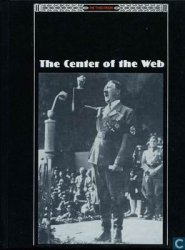John C. Calhoun states in his 1828 protest that if Congress enacted legislation that went beyond the powers assigned to it by the Constitution, states could declare such legislation null and void. The origin of this doctrine lies in the general skepticism with which the Constitution was met (by people like Patrick Henry) and which was further developed in the Kentucky and Virginia Resolves of 1798. The Ordinance below was passed in a special convention on November 24, 1832.
Whereas, the Congress of the United States, by various acts purporting to be acts laying duties and imposts on foreign imports, but in reality intended for the protection of domestic manufactures _ has exceeded its just powers under the Constitution _ and has violated the true meaning and intent of the Constitution, which provides for equality in imposing the burdens of taxation upon the several states and portions of the confederacy; _
We, therefore, the people of the state Of South Carolina, in Convention assembled, do declare and ordain, and it is hereby declared and ordained, that the [tariff acts of 1828 and 1832] are unauthorized by the Constitution of the United States and violate the true meaning and intent thereof, and are null, void, and no law, nor binding upon this state, its officers, or citizens; and all promises, contracts, and obligations made or entered into, or to be made or entered into, with purpose to secure the duties imposed by said acts, and all judicial proceedings which shall be hereafter had in affirmance thereof, are and shall be held utterly null and void.
And it is further ordained that it shall not be lawful for any of the constituted authorities, whether of this state or of the United States, to enforce the payment of duties imposed by the said acts within the limits of this state; _
And it is further ordained that all persons now holding any office of honor, profit, or trust, civil or military, under this state (members of the legislature excepted), shall, within such time and in such manner as the legislature shall prescribe, take an oath well and truly to obey, execute, and enforce this ordinance, _ And no person hereafter elected to any office of honor, profit, or trust, civil or military (members of the legislature excepted), shall, until the legislature shall otherwise provide and direct, enter on the execution of his office, or be in any respect competent to discharge the duties thereof, until he shall, in like manner, have taken a similar oath. _
And we, the people of South Carolina _ do further declare, that we will not submit to the application of force on the part of the federal government to reduce this state to obedience; but that we will consider the passage by Congress of any act authorizing the employment of a military or naval force against the state of South Carolina, her constituted authorities or citizens, or any act abolishing or closing the ports of this state, or any of them, or otherwise obstructing the free ingress and egress of vessels to and from the said ports, or any other act on the part of the federal government to coerce the state, shut up her ports, destroy or harass her commerce, or to enforce the acts hereby declared to be null and void, otherwise than through the civil tribunals of the country, as inconsistent with the longer continuance of South Carolina in the Union.
And that the people of this state will thenceforth hold themselves absolved from all further obligation to maintain or preserve their political connection with the people of the other states and will forthwith proceed to organize a separate government, and to do all other acts and things which sovereign and independent states may of right do.




 World History
World History



![Stalingrad: The Most Vicious Battle of the War [History of the Second World War 38]](https://www.worldhistory.biz/uploads/posts/2015-05/1432581864_1425486471_part-38.jpeg)





